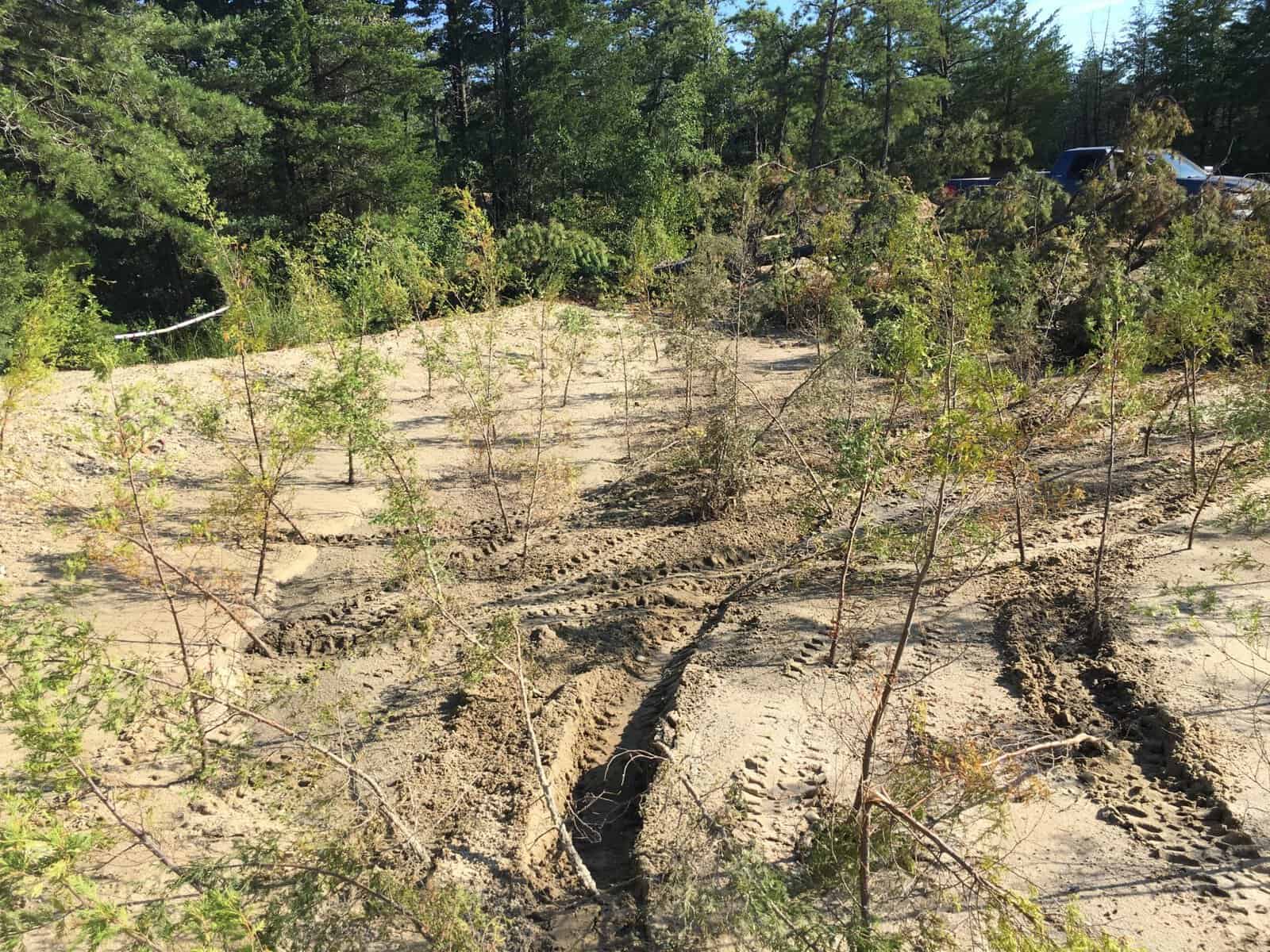by Tom Gilbert, Co-Executive Director, New Jersey Conservation Foundation
The illegal use of off-road vehicles (ORVs) – including four-wheel-drive vehicles, all-terrain vehicles (ATVs), and dirt bikes – is increasingly plaguing communities throughout the state, from city streets to sensitive natural areas in the Pine Barrens and beyond.
Many communities have been passing ordinances to crack down on illegal, dangerous use of these vehicles. But considerably more progress is needed in stopping them from tearing through sensitive habitats and turning streams, wetlands and ponds into mud pits.
For decades, there has been uneven enforcement of laws regulating ORVs and ATVs. But the New Jersey Attorney General’s Office just released new guidance signaling that it intends to get serious about unlawful, destructive, and dangerous vehicle use.
The guidance document was published by the Attorney General’s Division of Criminal Justice amid growing concern about ORVs being used illegally on public lands and public streets, causing environmental damage, safety hazards, noise, and pollution of water, soil and air.
In urban and suburban areas, unregistered and uninsured quads and dirt bikes are being driven recklessly on streets and sidewalks, threatening pedestrians and legal drivers. Officials say riders unlawfully drag race, weave through traffic and play “chicken” with oncoming vehicles.
Atlantic City, Jersey City, Paterson, Trenton, Absecon, Egg Harbor Township, Pleasantville, Vineland and Hamilton Township (Atlantic County) are among the municipalities that have adopted ordinances authorizing police to confiscate illegally ridden ATVs and demolish them.
In a statement, Attorney General Matthew J. Platkin said enforcement of ORV and ATV laws is needed in both rural and urban settings.
“The misuse of these vehicles on roadways poses a significant threat to the safety of the driving public and pedestrians, while their unlawful use on public lands endangers the natural landscape and natural resources,” he said. “The improper use of these vehicles in open spaces where they don’t belong has damaged important habitats, disturbed wildlife, destroyed plants, and disrupted the public’s quiet enjoyment of natural areas meant for use by all.”
The Attorney General’s guidance is aimed at educating police officers who may need to take enforcement actions against drivers and riders behaving illegally. It spells out what authority and enforcement mechanisms officers have at their disposal.
At a public forum earlier this year on ORV and ATV use in Wharton State Forest, many speakers called for stronger enforcement of existing laws and regulations to deter drivers and riders from going off-road and damaging sensitive Pine Barrens habitats.
Kudos to the Attorney General’s Office for tackling the issue head-on. It is encouraging to see the state’s top law enforcement official recognizing that this is a statewide problem that needs to be addressed through stronger enforcement. New Jersey has many levels of law enforcement – conservation officers, park police, State Police, and local police – and letting them know what they can and should be doing to shut down illegal ORV use is a long needed first step.
What will happen next? Actions speak louder than words, and we need public officials to use the guidance document to engage in more stringent enforcement.
The guidance document is not a mandate, but ideally it will foster greater cooperation among law enforcement agencies – as well as a culture of intolerance for illegal, dangerous, and destructive ORV use. Further progress could be made if a multi-agency plan is developed to target specific locations where ORV violations are known to occur.
Under the law, registered vehicles are restricted to designated roads; unregistered vehicles are generally prohibited on public lands, including parks and lands used for conservation purposes.
We need the Attorney General to further clarify how laws and regulations apply to properties owned by private nonprofit organizations and operated as public nature preserves. These lands are often preserved with funding from the state Green Acres Program, so it would make sense for them to be treated like the other public lands and covered by the same ORV laws and regulations.
Private nonprofits, including New Jersey Conservation Foundation, own tens of thousands of acres of preserves in New Jersey that are open to the public and often experience illegal ORV and ATV activity. But law enforcement agencies often fall short in protecting this private property from illegal trespass by ORV riders, resulting in impacts to the environment and public safety.
In Tewksbury Township in Hunterdon County, two horseback riders at a New Jersey Conservation Foundation-owned preserve were recently injured because of threatening behavior by a trespassing quad rider. As the quad sped aggressively toward the horseback riders, the horses reared and threw the riders to the ground, seriously injuring one. The driver took off and was not caught. In cases like this, police should be fully engaged to prosecute violators and prevent further ORV misconduct.
In this mostly densely-populated state in the nation, there is no place for thrill-seekers on vehicles who illegally threaten the safety of others on streets or trails, or damage sensitive natural resources protected for the public and future generations.
For more information on the Attorney General’s new guidance, go to www.njoag.gov/ags division-of-criminal-justice-issues-new-guidance-on-enforcing-laws-against-misuse-of-atvs off-road-vehicles-in-parks-forests-preserves-and-on-streets/.
And to learn more about preserving New Jersey’s land and natural resources, visit the New Jersey Conservation Foundation website or contact me at [email protected].

